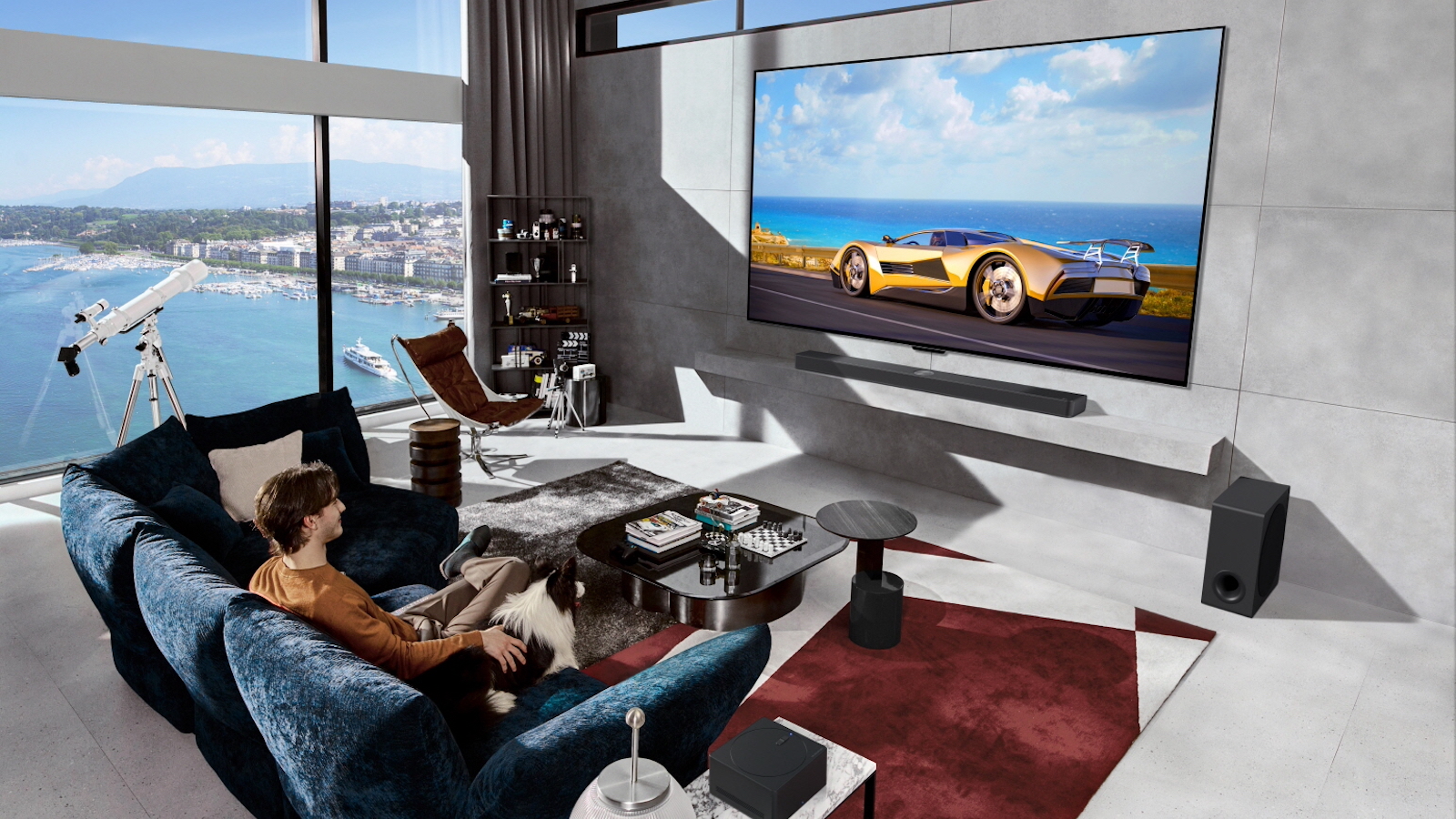
If you’re considering upgrading your TV experience with a new OLED TV this year, the newly announced LG G4 OLED may be on your list for consideration. After all, the company's G-Series model features some of the latest and greatest OLED panel technology out there and has consistently impressed our expert reviews team over the years.
But you may also be curious to know just how it compares to LG's even pricier, flagship M4 OLED, and what bits you'll be missing out on by not splashing the cash.
To that end, we’ve gathered all the details for you below, so you can decide whether to stick with the G4 or save for the even more impressive technology behind the M4.
Haven’t quite got the budget for either? Then you might want to look at how LG's mid-tier C4 model holds up to its pricier range mates with our LG C4 vs G4 comparison instead.
LG G4 vs LG M4: price

LG has yet to confirm the pricing and availability of any of its newly announced TVs for 2024, but a look back to last year’s prices should give us an idea of what we can expect. It's very unlikely that their prices – and the gap between them – will be wildly different.
The M-Series is available in fewer screen sizes than the G-Series (though a 65-inch model has been added this year), and launched last year at the following prices:
- LG OLED77M3: £6000 / $6000 / around AU$11,600
- LG OLED83M3: £8000 / $8000 / around AU$15,500
- LG OLED97M3: £28,000 / $30,000 / around AU$54,000
The G3, on the other hand, launched at the following prices:
- LG OLED55G3: £2600 / $2500 / AU$4195
- LG OLED65G3: £3500 / $3300 / AU$5295
- LG OLED77G3: £5000 / $4500 / AU$8395
- LG OLED83G3: £7500 / $6500 / AU$10,995
That the G3 comes in smaller sizes with more affordable price tags makes it more accessible for many, but the on-sale RRP at the larger sizes isn’t actually hugely different between the LG G4 and the M4, depending on your region. You’ll need to spend about £1000/$2500 more at 77 inches and £500/$1500 at 83 inches – not bad, particularly if you’re in the UK.
We’ll need to wait for official pricing in March/April to see how much the above prices have changed a year on, of course, but as ever you can also expect them to drop slightly after they've enjoyed a few months of shelf life. That said, the M3 has held its price a little more steadily than the G3, so the price gap between the two models could widen further too.
LG M4 vs LG G4: design

Design is one of the key areas in which the LG M4 and LG G4 differ. As with last year's models, the M4 is pretty much the G4 with LG's wireless tech built in.
That means that instead of having its ports and components built into the main TV body, like the LG G4 (and most other OLEDs), the M4 uses a wireless Zero Connect box to house them, which will include three HDMI 2.1 sockets.
This box will connect to your sources, such as a Blu-ray player or gaming console, and then send all of the picture and sound data to the TV wirelessly, with no cables required in the setup (other than power, of course).
This even includes the ability to wirelessly transmit Dolby Vision support and 4K/144Hz gaming signals for PC gamers. The limitations of current-gen gaming consoles mean they will remain at 4K/120Hz.
The G4 supports all of this too, but just without the wireless element.
Both the G4 and M4 feature LG's Zero Gap Wall Mount, which makes the TVs sit almost completely flush with your wall. If it's the same as last year, the M4 will also have the option of an easel-style stand, while the G4 will have an optional tabletop stand, available to buy separately.
We don't have the exact dimensions of the actual TVs yet, but based on last year's models there shouldn't be much in it between them.
In terms of sizing, the LG M4 will be available in 65 inches for the first time, as well as 77-, 83- and 97-inch screen sizes, while the LG G4 will be available in 55-, 65-, 77-, 83- and 97-inch options.
LG G4 vs LG M4: features
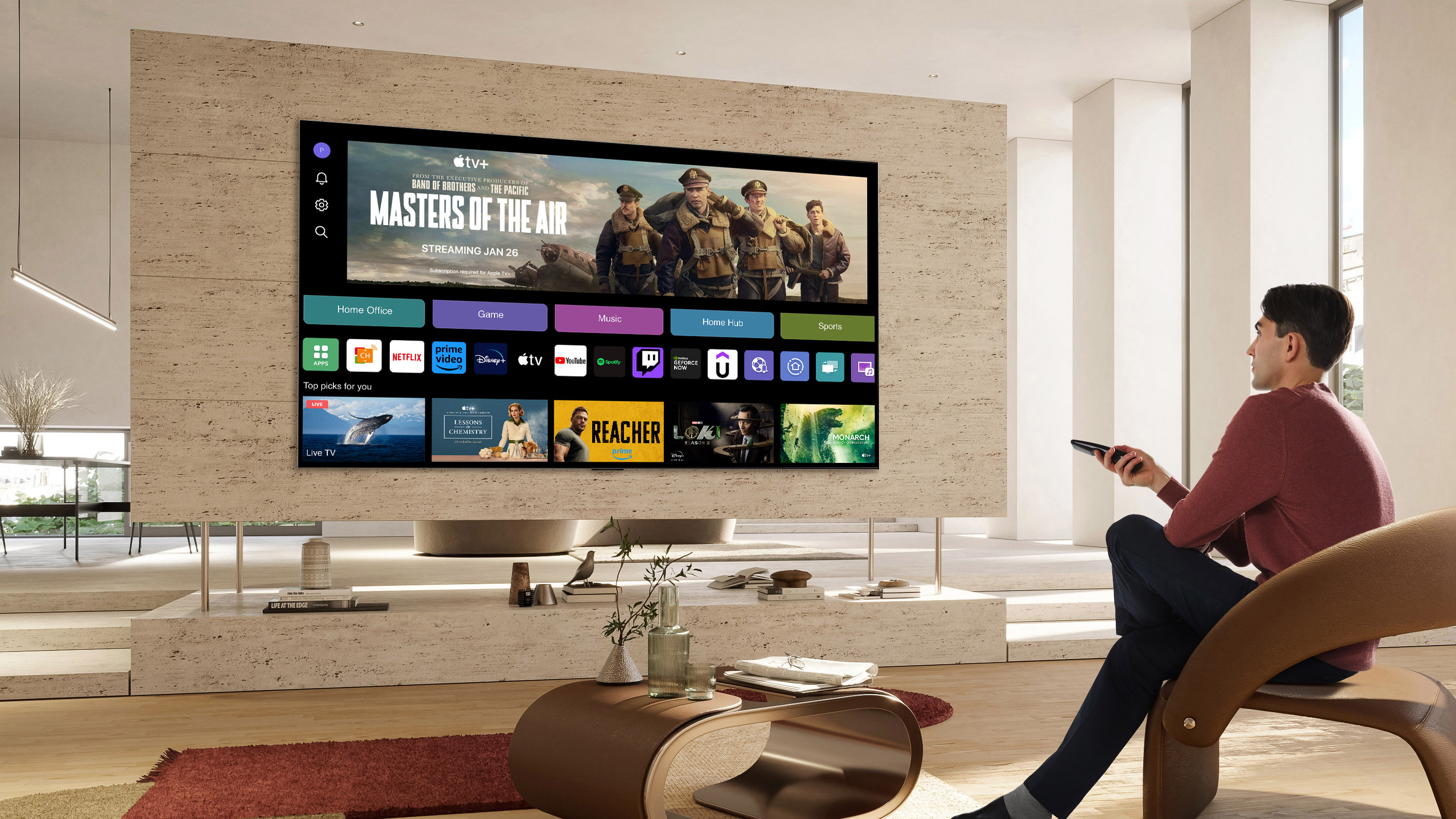
We don't have a lot of confirmed details for either the G4 or M4 in terms of feature sets, but if last year is anything to go on, the two will be very similar indeed in terms of their capabilities.
We've already touched on the newly added 4K/144Hz capabilities for both sets, though where the G4 has four full-bandwidth HDMI 2.1 ports, the M4 'only' has three.
As before, there is support for ALLM and VRR across the board, plus full Nvidia G-Sync certification for the first time.
LG's new Alpha 11 AI processor will run the show in both the G4 and the M4, promising a 70 per cent increase in graphics power and a 30 per cent boost to general processing compared with their predecessors.
That will power a lot of the picture improvements we'll touch on in the next section, which we believe will be shared between the G4 and the M4, since the two use the same Micro Lens Array (MLA) OLED panel.
In terms of their operating system and user interface, both the G4 and the M4 will feature LG's new webOS 24, which neatly offers support for five years of updates. That means you can expect software updates and support for new features and content up until 2028, offering you peace of mind that your TV is futureproofed for a good long while.
This year's webOS update includes a couple of notable new features, including Chromecast built-in, Multi View for up to four screens instead of two, and password-protected user accounts for up to 10 people. Individual voice recognition is in the pipeline, too, which will then allow for personalised content recommendations.
A few OS design tweaks should make content from more sources easier to access, too.
LG G4 vs LG M4: picture
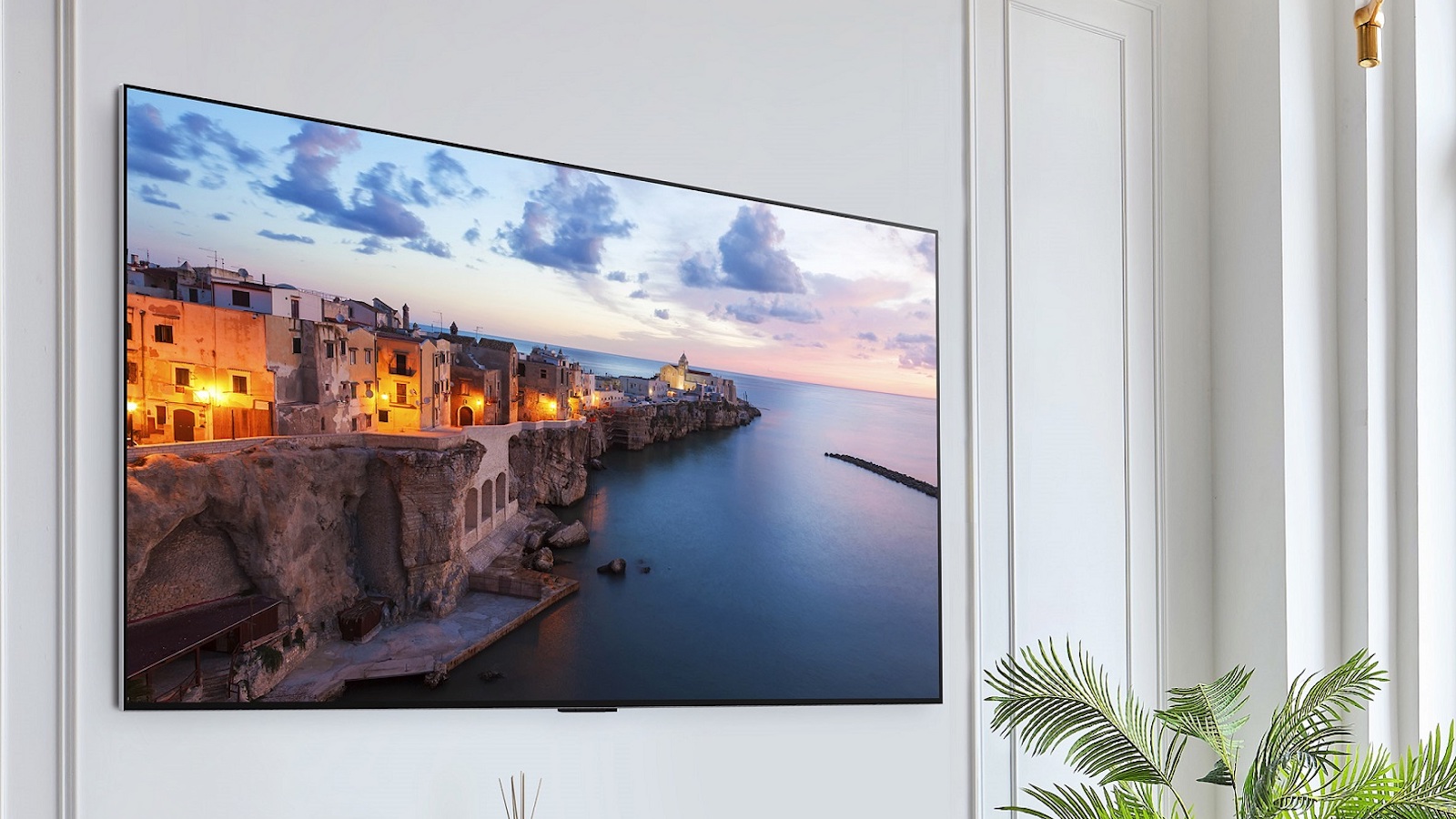
We haven't been hands-on with the just-announced G4 or the M4 just yet (watch this space!), so for now we can only speculate on how the two might compare. But based on our experiences with previous models and the fact the two 2024 TVs share many specs, we'd expect them to perform pretty similarly indeed.
First and foremost, they use an identical OLED panel, which uses Micro Lens Array (MLA) technology, complete with a heatsink – the same combination that last year's G3 and M3 also used.
As they're also driven by the same processor, their picture performance should be very close, though whether the wireless transmission capabilities of the M4 have any impact on that remains to be seen.
We weren't able to compare the two side by side last year – funnily enough, samples of TVs costing multiple thousands aren't easy to come across! – but our hands-on M3 review praised its "gorgeous picture quality" and "seamless" transition from box to TV, while the LG G3 picked up the full five-star set in our full G3 review.
We can, however, expect some picture improvements for this latest generation of TVs thanks to their new Alpha 11 AI processor, which facilitates a couple of new features. One is LG’s AI Picture Pro – AI Director Processing, designed to automatically optimise the picture to best portray the director’s intentions concerning colour tone, and the other is Object Enhancing by Visual Perception, which will aim to tweak and improve a picture through pixel-by-pixel analysis.
The new Peak Highlighter feature should also deliver a peak brightness level 150 per cent higher than a traditional OLED (albeit on a relatively small 3 per cent window).
LG G4 vs LG M4: sound
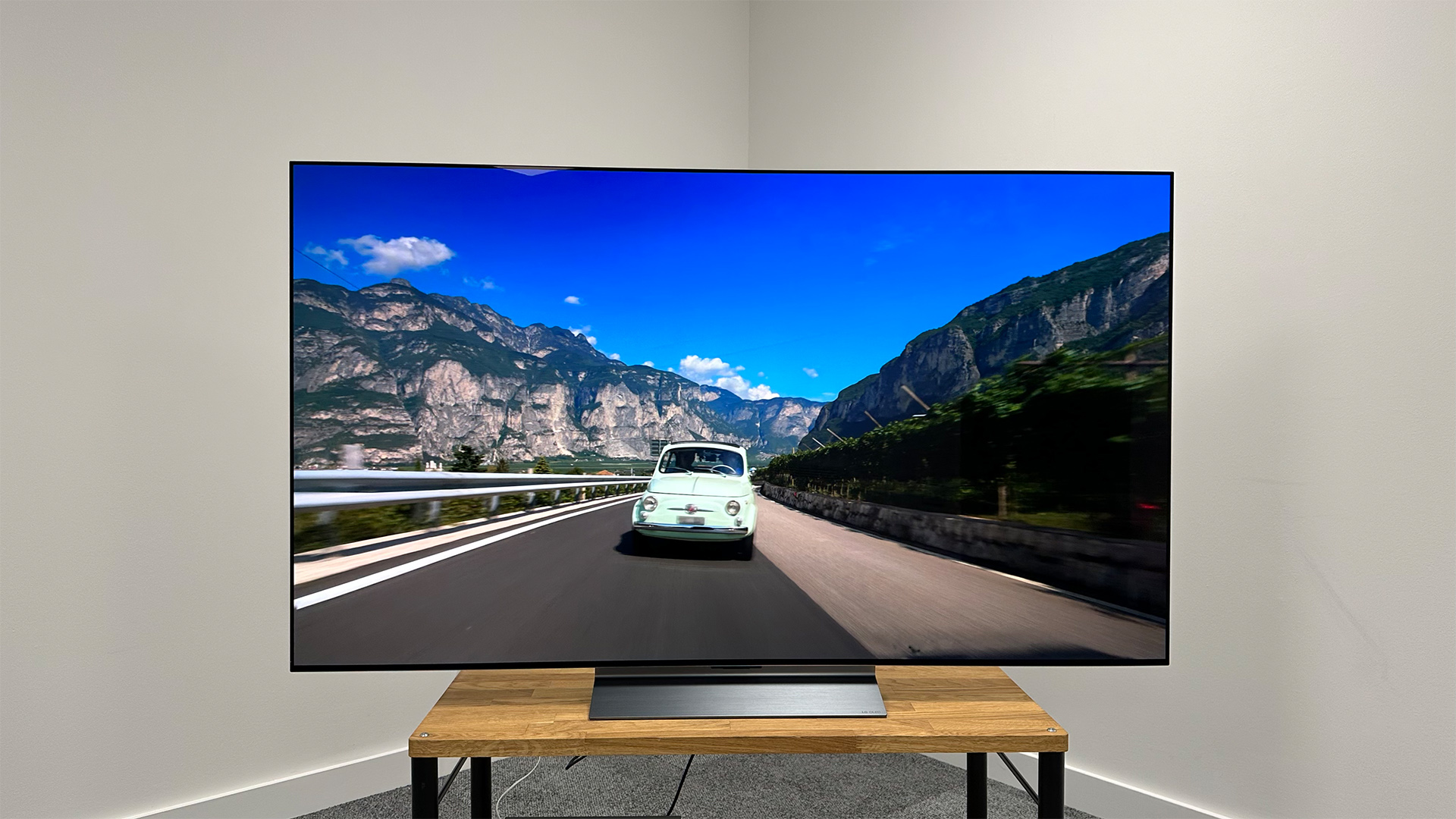
For a long time, sound quality hasn't been anything to write home about with LG's OLED TVs, but one improvement over last year has been confirmed for the LG G4, and we expect it will also be replicated on the M4.
Not only has the Dolby Atmos-capable sound system had a boost from a 9.1.2 setup to 11.1.2, but the Alpha 11 AI chip will, LG says, help the TVs to produce 'richer and fuller audio'. And here's hoping something a little more exciting too...
LG G4 vs LG M4: early verdict
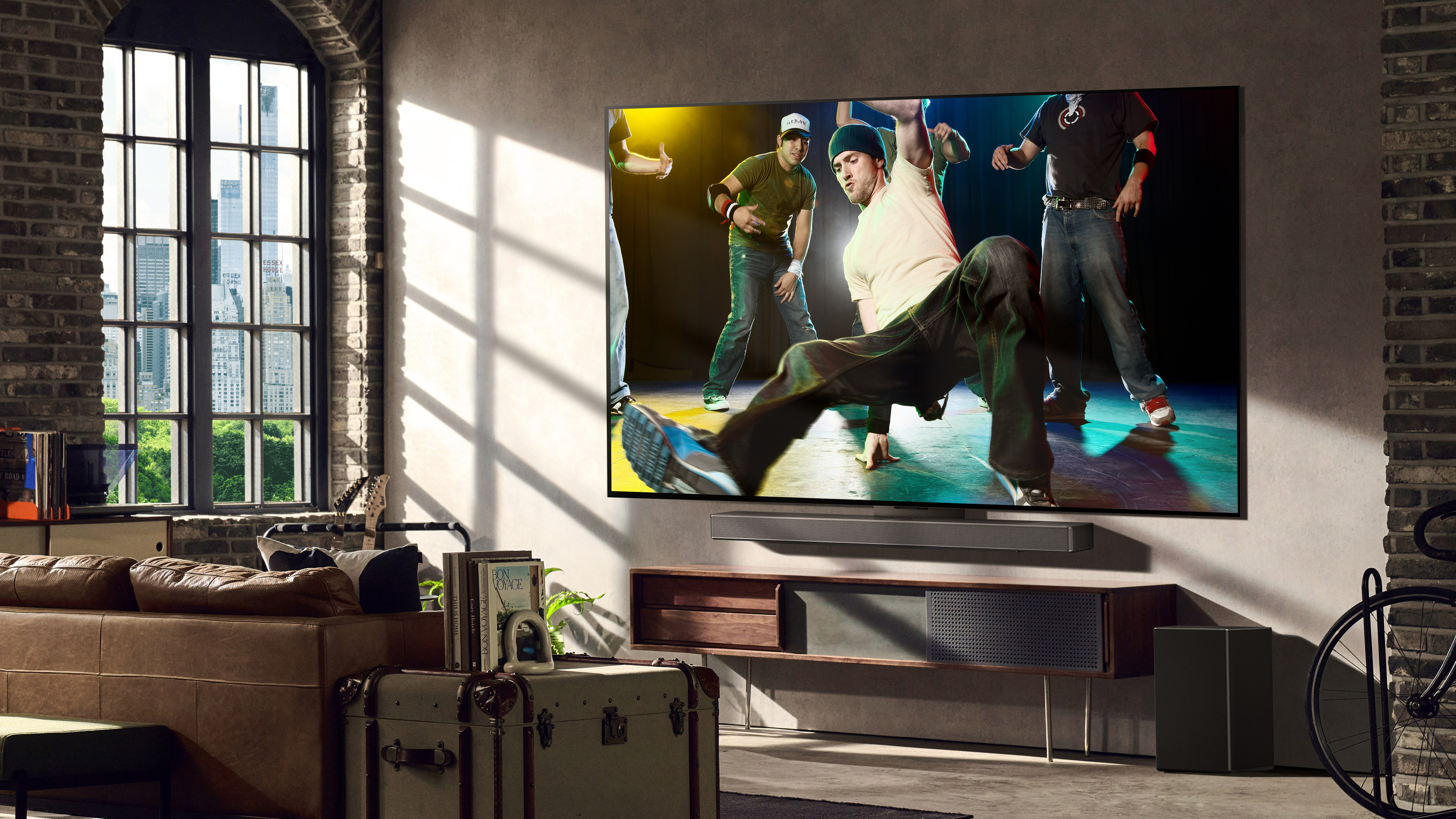
When it comes to choosing between the LG G4 and the LG M4, your budget is going to play a large part as to which will be more suitable. Because, on paper at least, it seems that these two could perform quite similarly. Really, the decision between the two lies in how much weight you put on the convenience of wireless transmission.
From what we know so far (and some assumptions based on last year's models), they carry basically identical specs, save for the M4's ability to transmit its sound and images wirelessly, and its one less HDMI input.
A question mark still hangs over how much of an impact the wireless tech could have over picture and sound performance. Of course, it's something that LG is saying shouldn't be noticeable at all, but as we didn't review the M3 in full last year, we have yet to truly put it through its paces.
We're hopeful we can do just that this year, and we'll be sure to update this piece with our full thoughts when we do.
For now, the LG M4 remains a very cool TV with some admirable bragging rights, but for most people the LG G4 will undoubtedly be the best choice of the two, as it looks to provide the same performance at a lower price.
MORE:
Read our full LG OLED65G3 review
Or take a look at our LG M3 hands on
Check out the LG C4 vs LG G4 comparison







